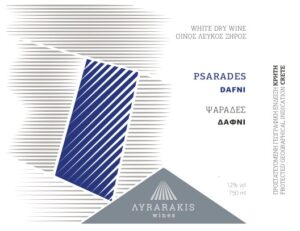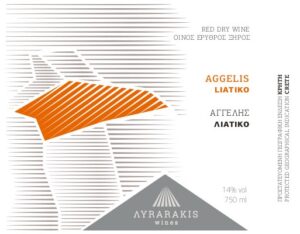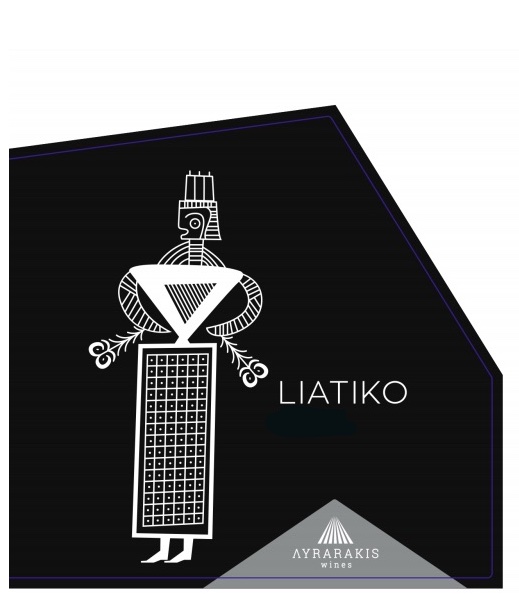
Liatiko
The figure on the label is wearing a Minoan-inspired dress paying homage to its origin.
100% Liatiko – a short-form of the Greek word for “July”, an early-ripening red variety native to Crete. The vines are dry-farmed and planted on sandy loam soil, in Rethymno, central Crete and Sitia, east Crete. The vines are 580 to 800 meters above sea level. The low yields lead to small grapes with exceptional intensity of flavor, which are hand-harvested during the first week of September. After a 3-day maceration for te extraction of color, the grapes are fermented in stainless steel tanks.
Expressive aromas of wild berries, strawberry marmalade and butterscotch. Deep and pure, with fine tannins and a juicy finish. 14% alcohol.
About the Producer
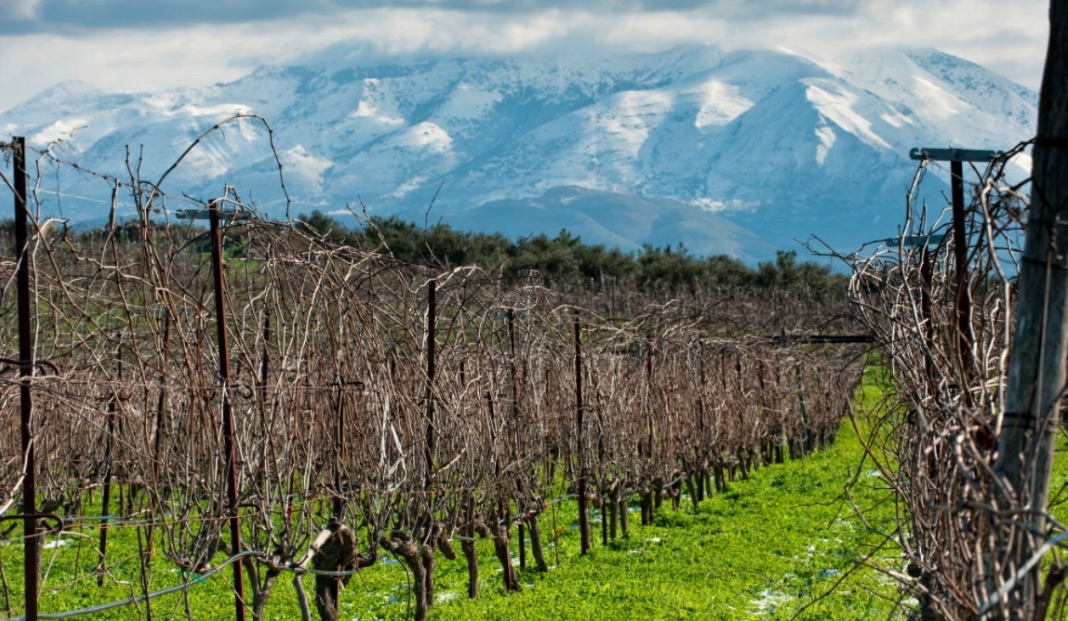
The Lyrarakis Estate was founded in 1966 by brothers Manolis and Sotiris Lyrarakis. It is surrounded by the Lassithi mountains and focuses on rare local varieties and single variety wines. The Lyrarakis family is credited with the revival of two ancient white Cretan varieties, Dafni and Plyto while a third “vineyard treasure”, the indigenous Melissaki, was recently added to their credit. Vilana, White Muscat and Sauvignon Blanc complete the range of white varieties, and Kotsifali, Mandilari, Black Muscat as well as Syrah, Merlot and Cabernet Sauvignon, the red ones.
The winery is situated in one of the most noteworthy vineyard regions of Crete, namely at Alagni, Heraklion, the most mountainous village of the appellation area (AOC) of PEZA. The company only started bottling wines under the Lyrarakis name in the early nineties, and 1992 was the first vintage.
Today, the company is managed by the second generation: Bart (CEO), George (Chairman) and Manolis (viticulturalist). The estate vineyards spread over 14 hectares, at an average altitude of 550 meters. The soil is composed of gravel and limestone.
Farming/sustainability practices: in conversion to organic farming - certain vineyards are already certified. Member of the People4soil initiative - European Citizens Initiative (ECI) - aiming at lobbying for the creation of a specific European legislation that will recognize soil as a common good and will establish regulations for its protection. An organic community garden produces part of the vegetables used for the meals served during the meetings of various groups (employees, members of St August winegrowers group and others).
Lyrarakis
Lyrarakis - Jancis Robinson 2020
Lyrarakis Liatiko - Jancis Robinson June 7, 2024
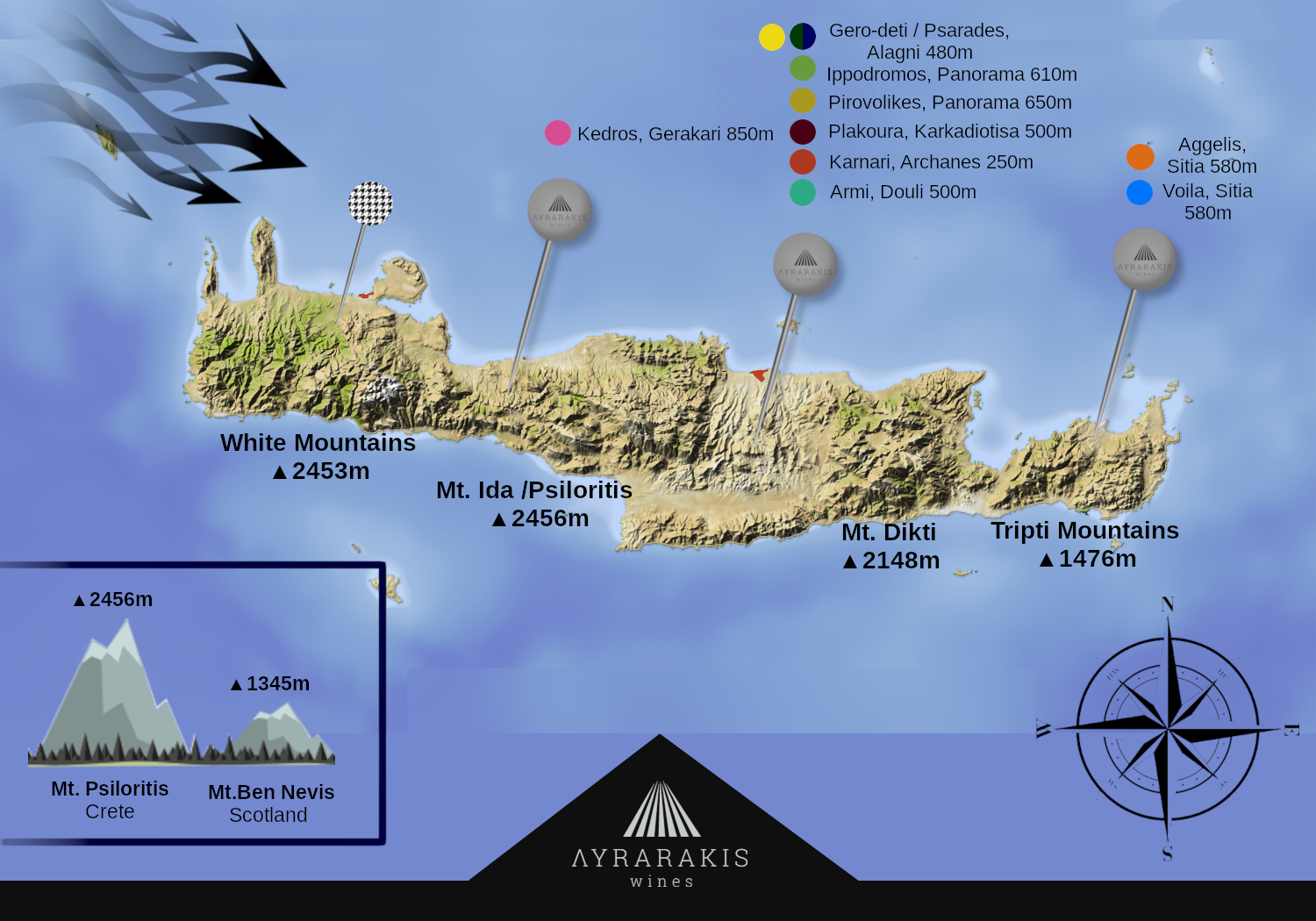
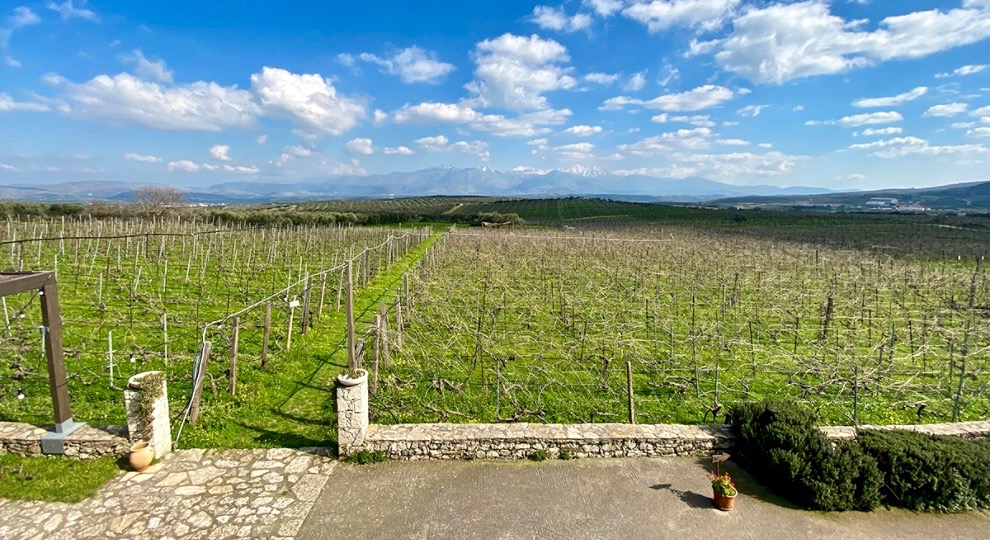
related products
-
Lyrarakis
Dafni – Psarades Vineyard
-
Lyrarakis
Liatiko – Aggelis Vineyard

